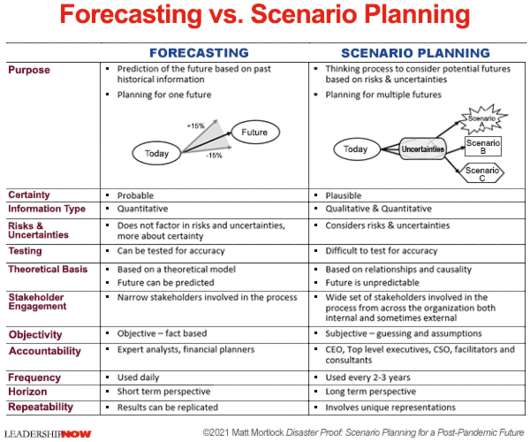Scenario Planning vs. Forecasting: 6 Questions to Ask to Prepare for a Post-Pandemic Future
Leading Blog
MAY 12, 2021
There is often confusion between scenario planning and forecasting, with the terms used interchangeably and inconsistently. Scenario planning is focused on the future and involves defining different stories behind different paths that will lead to that future.












Let's personalize your content